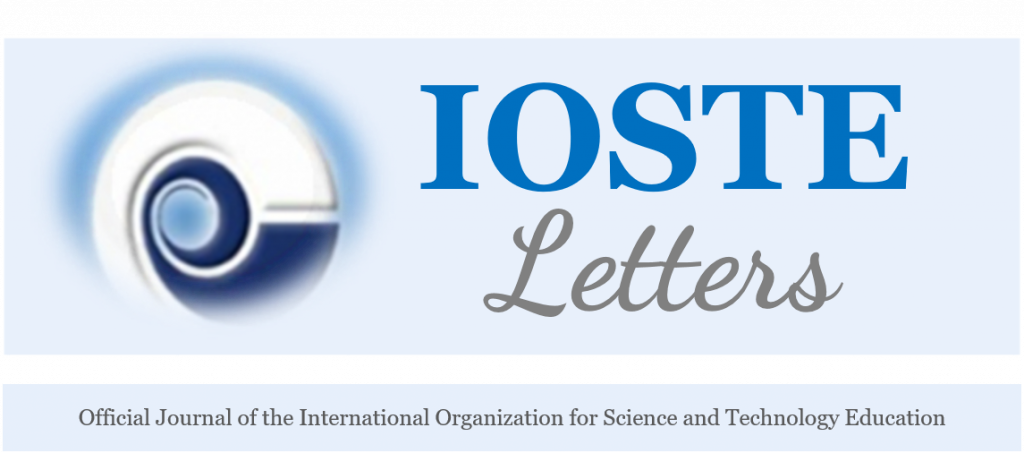
eISSN : 2799-3507
An international journal IOSTE Letters is established in 2021 and issued by the International Organization for Science and Technology Education in cooperation with Korean Society of Biology Education, emphasizes studies of educational theories and practices in the field of science and technology education. IOSTE Letters is an Open Access, double-blind peer-reviewed Journal.
IOSTE
The International Organization for Science and Technology Education was established to advance the cause of education in science and technology as a vital part of the general education of the peoples of all countries and to provide scholarly exchange and discussion in the field of Science and Technology Education.
Its origins can be traced to a Symposium on World Trends in Science Education convened in August 1979 in Halifax, Nova Scotia, Canada. At the third symposium, held in Brisbane (Australia) in 1984, the informal circuit of ‘World Trends’ was transformed into a formal organization with members from over sixty countries.
Today, IOSTE has members from about eighty countries, and is officially recognized by UNESCO as a non-governmental organization. Membership of the International Organization for Science and Technology Education is open to all who subscribe to its Constitution.
Executive board



Upcoming symposium
XX Symposium of the IOSTE will be held in Federal University of Pernambuco, Recife, Brazil.
“Esperançar in uncertainty times: the role of science and technology education in/for a changing world”
Date: July 25-29, 2022.
- Chairs
Dr. João R. R. Tenório da Silva
Federal University of Pernambuco (UFPE)
ioste2022@ufpe.br
Dr. Glauco dos Santos F. da Silva
Federal Center of Technology and Education (CEFET/RJ)
ioste2022@ufpe.br
Previous symposium
XIX Symposium of the IOSTE held in Kyungpook National University, Daegu, Korea.
Due to COVID-19 outbreak, the online symposium was carried out in 1 – 5 February 2021.
The theme of the IOSTE 2020 was “Transforming Science & Technology Education to Cultivate Participatory Citizens.” In the contemporary society, science and technology development continually produces various forms of concerns—not limited to global warming, energy crisis, hazards of new materials, health threats, etc.—to which citizens must constantly respond. STE should prioritize cultivating participatory citizens who are able to promote public debate and dialogue on such societal and global issues, and ultimately willing to take responsible actions for the sustainable development.
- Organizers
Hae Ae Seo
Pusan National University, Korea
haseo@pusan.ac.kr
Youngjoon Shin
Gyeongin National University of Education, Korea
yjshin@ginue.ac.kr
- LinksWebsite